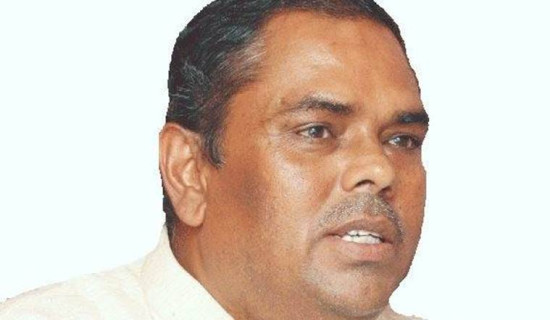- Monday, 2 March 2026
Educational Reforms
The scope of education is so vast it cannot be confined within a narrow, rigid and dogmatic definition. Its aim is not simply to produce manpower fit for clerk job in office desk, a notion that has swayed the public psyche in Nepal for a long time. Now there is a fresh realisation of educating the generation that is well versed with the development of science and technology and can take up work challenges in the global sphere. In order to break the shackles of backwardness, the new generation needs to come out of their cocoon to shine with their abilities to become international citizens. We live in a highly globalised world where economic and trade activities are closely interconnected. In this environment, we cannot thrive and prosper if we continue to live in isolation.
Education system needs to be designed in such a way that can bring out all the potentials of a person and enables him/her to take up important slots in the political leadership, social trailblazer, educator, scientific innovator, academician, medical researcher, technological inventor and high demand personnel in the national and international job market. For this to happen, Nepal needs to make a quality leap forward in the education sector. The work toward this direction should start right from the timely reforms in the education system itself. This is the crucial point Prime Minister Pushpa Kamal Dahal Prachanda emphasised during his address at a programme the other day. In this context, the Prime Minister brought it into public notice that the government is going to introduce Federal Education Act that seeks to make a timely review and reforms in the education system of the country.
The new education act aims to end all the existing anomalies seen in the education sphere and address the issues in a package. The focus is on upgrading the quality of education with necessary changes in curriculum so that qualified manpower can be produce that can compete in the international job market. The Prime Minister said that the education system will be developed in such a way that it helps to bring all round development of citizens. Focus on some particular aspect of life cannot ignore other sector that may be equally important. For instance, embracing benefits of science and technology cannot overlook moral values, cultural wealth and social norms that make up our civilisation. Technical and vocational education should get appropriated priority so that what we learn becomes useful for life and livelihood.
Leadership and entrepreneurship should also go hand in hand so that the country can boast of job creation, industrial ventures, agro commercialisation and production enhancement to give a boost to the national economy. We should not only be utilising the advancements made in the scientific and technological fronts by others but also prioritise research and development in these sectors within the country. In this regard, Prime Minister Prachanda stressed the need to introduce science, maths and engineering subjects from the secondary level of learning. The aim is to prepare soundly knowledgeable manpower for the competitive global market. The government plans to make legal, institutional and structural reforms to enhance the quality of education as per the need of the present time.
















